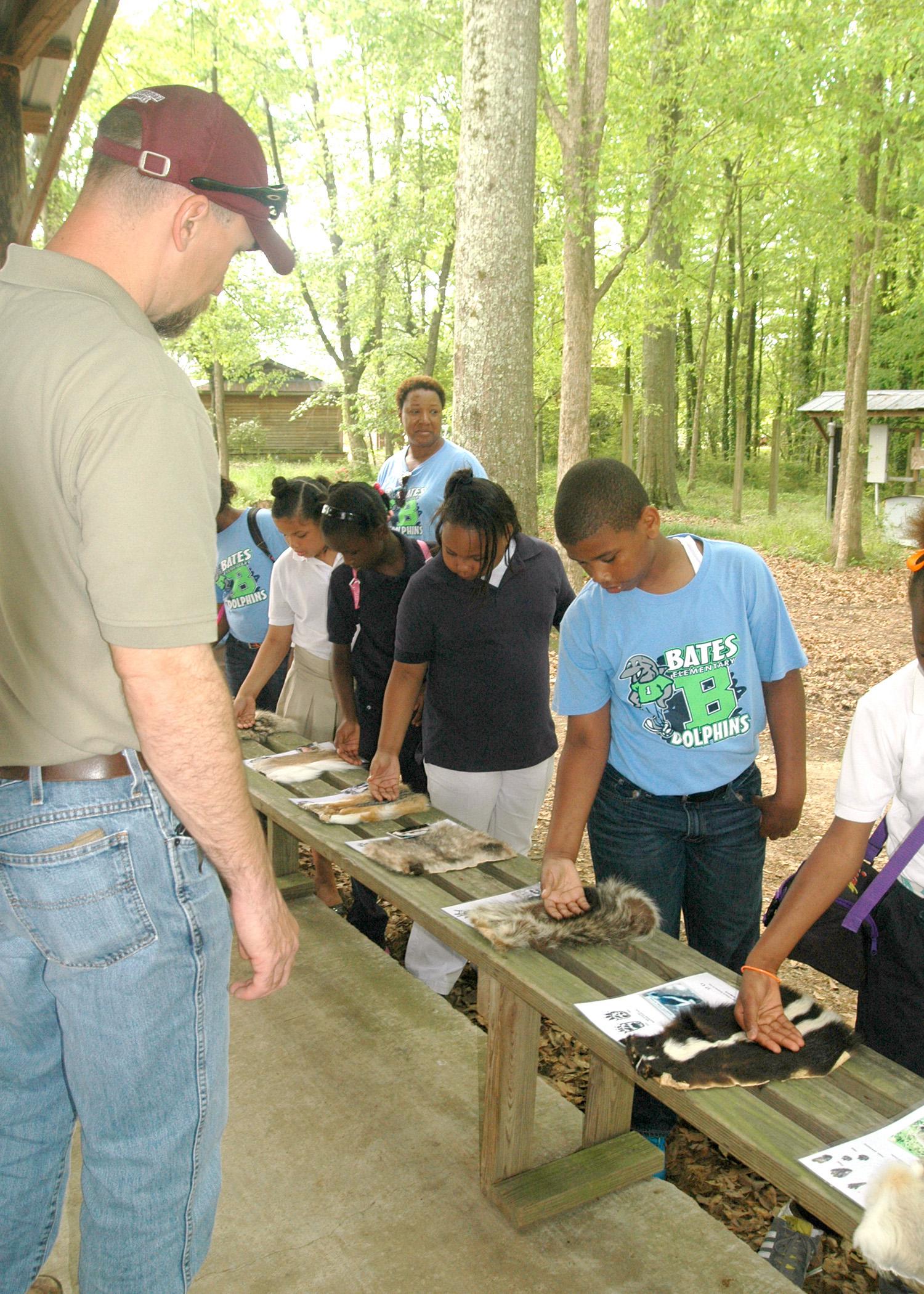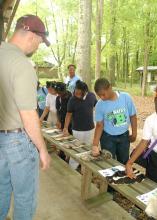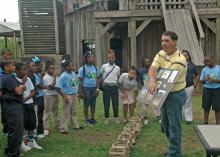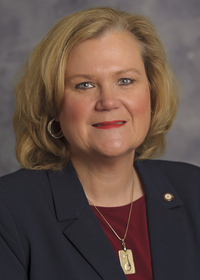Information Possibly Outdated
The information presented on this page was originally released on April 24, 2013. It may not be outdated, but please search our site for more current information. If you plan to quote or reference this information in a publication, please check with the Extension specialist or author before proceeding.
AgVentures brings agriculture to life
JACKSON -- Fourth-graders from Jackson area schools recently got a new appreciation for the clothes on their backs and the food on their tables at AgVentures.
The event, held at the Mississippi Agriculture and Forestry Museum, provided hands-on, educational activities designed to teach children the role of agriculture in daily life. Mississippi State University Extension Service and several partner organizations sponsored the program.
“We want to create awareness about agriculture and the importance of farming in Mississippi,” said Theresa Hand, Hinds County coordinator with MSU’s Extension Service. “We want kids to understand where their food and clothing come from and that we depend on agriculture for many of the products we use every day.”
Students from Jackson Public Schools, Hinds County School District, and Rankin County School District learned about the life cycle of food products, such as poultry and corn. They saw an active composting bin for kitchen waste and learned which items earthworms like and dislike. They visited the garden and saw examples of squash, eggplant and other vegetables. They learned to identify seeds and make biscuits.
At the 4-H museum, students churned their own butter to eat with the biscuits while learning about Cloverbell, the dairy cow. They visited goats, ponies and Rudy the calf at the barnyard, learned about Mississippi’s forests and native wildlife, and walked the nature trail.
The children also viewed many exhibits and artifacts on the Ag Museum grounds, including the cotton gin and the general store.
The event complemented many of the students’ current lessons in the classroom. Cassandra Barrett’s Bates Elementary class is studying Mississippi.
“This is really a great tie-in to what we are learning right now,” Barrett said. “The hands-on experiences are awesome.”
Students from Jackson Public School’s Power Academic and Performing Arts Complex also had the chance to broaden classroom concepts through hands-on academic activities.
“This is such a great opportunity for our students to build on what we teach in our classrooms,” said Shanel Kidd, Open Doors classroom teacher at Power APAC. “Our students are familiar with agriculture and wildlife. We are planting a small garden to go along with our two yellow-bellied slider turtles, a variety of fish, and mealworms to teach different concepts about agriculture. The AgVentures experience allows the students to build on their prior knowledge. It’s always exciting to watch students make those connections.”
Kidd said Power APAC teachers always link filed trips with classroom curriculum and state standards. Students always return with an assignment to complete. Students will use the information they gathered during AgVentures to create skits, trivia games and a PowerPoint presentation to share what they learned with their fellow students.
“Our students are so fascinated by the presentations here today,” Kidd said. “They could probably tell you everything they learned about agriculture and wildlife today.”
That’s exactly the result Hand and her staff want.
“Many of these children don’t have a concrete connection to agriculture because they live in an urban area,” Hand said. “If we can illustrate things they’ve already learned in their textbooks with a fun activity, they will be much more likely to remember it.
“That’s important because the future of a safe and abundant food supply depends on our children,” Hand said. “Even if they choose not to enter an agricultural field of study in college or become a farmer, they need to know how to be good environmental stewards, conserving our natural resources and managing their own land.”
Organizations assisting with the two-day event were Mississippi Farm Bureau, Mississippi Cattlemen’s Association, Mississippi Cattlewomen’s Association, Mississippi Department of Wildlife, Fisheries and Parks, Mississippi Soil and Water Commission, Natural Resources Conservation Service, and Mississippi Department of Agriculture.






